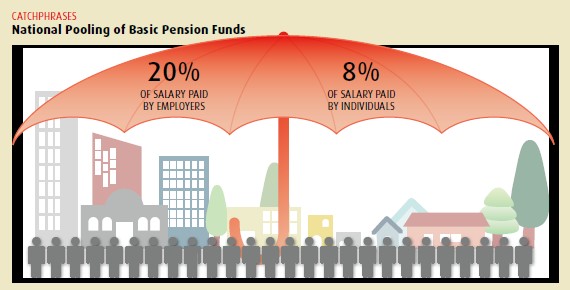| The Report to the 18th National Congress of the Communist Party of China (CPC), made by then Party General Secretary Hu Jintao on November 8, 2012, laid out a blueprint for China's future. Comprehensive insight into the key terms in this report will help readers better understand the country's national strategies and its future path. ChinAfrica introduces some of these terms.

National Pooling of Basic Pension Funds
People's wellbeing has been an important topic in government work in China. In the section on Strengthening Social Development by Improving the People's Wellbeing and Making Innovations in Management, the report said that, to ensure a sustainable old-age security system, basic pensions in China will be placed under unified national planning.
Today, China's old-age security system benefits 700 million people, the largest population covered by a social endowment insurance system in the world. But under the current system, the social pool of pension funds mainly operates at the provincial level, which poses a huge problem for the booming migrant population.
In order to further improve the system, the 18th CPC National Congress stressed the importance of pooling the basic pension fund at the national level. It is also a goal clearly defined in China's 12th Five-Year Plan (2011-15) to reduce the imbalance between urban and rural areas with regard to social security benefits. It means that the old-age insurance funds collected from all over the country, except for those saved in individual accounts, will be managed and allocated at the national level.
Under this system, migrant workers no longer have to worry about getting a meager pension determined by local average wage levels when they retire and return to their remote hometowns from big cities. Putting basic pensions under unified national planning makes them less restrictive. No matter where they are, people's pensions will be based on how much they contributed to the national pension pool.
(Source: CCTV News) |